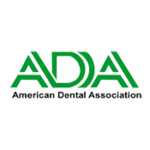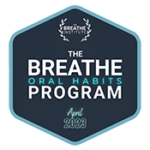I was driving down the road the other day a flipped down my visor to take a look at my brows to see if they needed tweezing. It’s a long story, but the short version is that we have fluorescent lighting in our house and it is horrible and makes it impossible to visualize little details like, “Do my brows look ok?” It turned out that my brows were indeed in need of plucking (luckily, I have tweezers in the car). I flashed a smile at myself in the mirror and was shocked to note how yellow and, well, translucent my teeth appeared. What could be causing that?
“Tea? Coffee?” my helpful husband suggested. No, that wasn’t it. I have recently changed toothpastes to an all-natural one, which means that there is not added fluoride. I also drink water that has been filtered for everything, so there’s no fluoride in my drinking water. “Could theses things be the culprit of my clear, yellow teeth?” I wondered to myself.
It turns out that minerals such as calcium and phosphate help make up tooth enamel, along with bone and dentin. They also prevent tooth decay and, subsequently, cavities. As we age, the minerals in our teeth can decrease. This may be caused by eating sugary and acidic foods (soda, coffee, and more). It can also occur when bacteria accumulate in the mouth. Sadly, once the enamel or bone are gone, there’s no way to get them back without replacing the tooth entirely. As I looked at my teeth in the mirror, I realized that the discoloration just might be due to demineralization.
Fear not! It IS possible to help replenish the calcium and phosphate minerals with lifestyle changes and home remedies before tooth decay occurs. This process is known as remineralization.
How to remineralize?
Step 1: BRUSH YOUR TEETH!
Like a broken record, let me repeat: brushing your teeth is important. It removes bacteria. Bacteria cause cavities. No bacteria: No cavities.
Step 2: Use fluoride toothpaste
Fluoride strengthens your teeth and it prevents tooth decay via the remineralization process.
Step 3: Stop with the sugar already!
Again, like a broken record: Sugar is bad. It is highly acidic and it interacts with bacteria in the mouth, breaking down tooth enamel. A special note: natural, unprocessed sugars, like honey may be among the worst culprits for harming tooth enamel. Another special note: it’s not the *quantity* of sugar that you consume, but rather the frequency with which you do so that affects tooth demineralization.
Potatoes, rice, bread and other starch-laden foods increase the amount of fermentable sugars in the mouth, resulting in tooth erosion, just as with “regular” sugars. Combine starchy foods with sugar and you have a lethal mix. Always keep in mind that sugar comes in the form of carbohydrates as well as sugar.
Step 4: Chew sugarless gum
Finally, advice that is fun. Current studies indicate that sugarless gums may actually promote the remineralization process because they help to remove sugar, plaque and carbohydrates from the teeth, while encouraging salivation.
Step 4: Fruit and fruit juice consumption should be in moderation
It’s sad, but it’s best to not consume fruit juice and to consume fruits in moderation. Citrus fruits (oranges, grapefruits, etc.) are particularly bad for the calcium in your teeth. Fruit acids cause calcium chelation, which means that the acids from the fruits bind with the tooth calcium and strip it away. Simply said: More fruit = less tooth calcium.
Step 6: Increase your calcium and vitamin intake, including probiotics
Bonus: eating calcium-rich cheeses might counteract the effects of eating sugar. If your dietary calcium intake is low, consider a supplement. Newer studies indicate that Vitamin D may be be important for protecting against cavities. Ask your doctor or dentist if they feel that a Vitamin D supplement might be a good idea for you. Probiotics have received a lot of attention in recent years, and with good reason. When it comes to your teeth, they can be an important player in the process of reminerilization. Only certain strains of probiotics are produced in the mouth and these are the ones you want to take to aide in oral health. These strains include bifidobacterium, reuteri, rhamnosus and salivarius. Finally, take a daily multi-vitamin.
Step 7 : Decrease your dairy intake.
There’s balance in everything. Dairy is a great source of calcium. But, the lactose in traditional milk products can increase the acidity in your mouth. Consider opting for lactose-free, almond, or soy milk.
Step 8: Salivate
Saliva is integral ot remineralization. If you find that you have a dry mouth, then consider talking to your dentist about gums and rinses that can increase saliva activity. In the meantime, start chewing a sugarfree gum between meals.
Step 9: Drink WATER
‘Nuff said.










